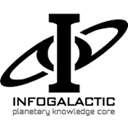Unlocking Knowledge: The Best Lunyr Alternatives for Decentralized Information
Lunyr is an ambitious project aiming to be the decentralized, crowdsourced encyclopedia of the future, built on the Ethereum blockchain. It incentivizes users with app tokens for contributing and peer-reviewing information, aspiring to be a reliable knowledge base much like Wikipedia. However, for various reasons – whether it's seeking a more established platform, a different community focus, or a specific set of features – many users are looking for viable Lunyr alternatives. This article will explore the top options available, offering a diverse range of choices for those seeking to contribute to or access reliable information.
Top Lunyr Alternatives
While Lunyr carves out its niche in the decentralized web, the world of online knowledge platforms is vast and varied. Here are some excellent alternatives that offer different approaches to information sharing and creation, catering to diverse user needs and preferences.

Wikipedia
Wikipedia is the world's largest free, multilingual encyclopedia project, supported by the non-profit Wikimedia Foundation. With millions of articles in countless languages, it offers a well-established and widely accessible knowledge base. As a Free, Open Source, and Web-based platform (with Android, iPhone, and other mobile app support), Wikipedia is a robust alternative with features like multiple languages, an ad-free experience, user-generated content, and a strong community basis, making it a foundational source that Lunyr aims to emulate.

Everipedia
Everipedia positions itself as a more accessible and user-friendly alternative to Wikipedia, by removing stringent notability requirements and simplifying the citation process. It operates as a Free platform, available on Mac, Windows, Linux, Android, iPhone, and iPad. Everipedia is a strong contender as a Lunyr alternative due to its focus on crowdsourced and user-generated content, making it a dynamic wiki platform for knowledge sharing.

Infogalactic
Infogalactic, self-proclaimed as "The planetary knowledge core," offers a censorship-free environment for information, distinguishing itself from platforms like Wikipedia. It is a Free and Open Source Web platform, aiming to provide an alternative perspective on knowledge sharing, which might appeal to users seeking different editorial approaches compared to Lunyr.

Wikiwand
Wikiwand enhances the Wikipedia experience with a modernized and user-friendly interface. It's a Free Web platform with extensions for various browsers (Chrome, Safari, Firefox, Opera, Chromium, Vivaldi) and an iPhone app. While not a content creation platform like Lunyr, Wikiwand is an excellent alternative for consuming knowledge, offering a superior UI Design for improved readability and navigation.

Metacademy
Metacademy is a free, open-source platform designed for efficient and personalized learning. Available as a Web platform, it focuses on building a community-based knowledge base for educational purposes. For users interested in structured learning and academic content, Metacademy offers a different kind of knowledge platform compared to Lunyr's general encyclopedia approach.

Encyclopædia Britannica
Encyclopædia Britannica is a long-standing, authoritative general English-language encyclopedia. While a Commercial platform available on Mac, Windows, and Web, it offers high-quality, curated educational content. For those prioritizing editorial rigor and established authority over decentralized content generation, Britannica stands as a robust Lunyr alternative for reliable information.

Reference.com
Reference.com provides a comprehensive suite of free online reference tools, including a dictionary, thesaurus, encyclopedia, quote finder, and translator. As a Free Web platform, it's an accessible resource for quick lookups and general knowledge, serving as a functional alternative for specific information needs that Lunyr might also aim to cover.

Worldometers
Worldometers is unique in its focus on real-time world statistics, run by an international team of developers and researchers. It's a Free Personal platform available on Mac, Windows, Linux, Web, Android, and Chrome OS. While not a general encyclopedia, its dedication to live data and stats provides a valuable and specialized knowledge base that could complement or serve as an alternative for specific information-seeking tasks.

Oppia
Oppia is a free, open-source learning platform featuring interactive activities called 'explorations.' Available on Mac, Windows, Linux, Web, and Self-Hosted environments, Oppia emphasizes interactive learning and knowledge transfer, including features like 'Learn with Flashcards.' For users interested in educational content and teaching rather than a traditional encyclopedia, Oppia presents an engaging alternative to Lunyr.

Libregamewiki
LibreGameWiki is a free gaming encyclopedia specifically focused on games developed as open source and using open media. It's a Free, Open Source Web platform built on MediaWiki. For users with a niche interest in open-source gaming knowledge, this specialized wiki serves as a valuable and highly relevant alternative for specific information that Lunyr, as a general encyclopedia, might not cover in as much detail.
From established giants like Wikipedia to specialized learning platforms and niche wikis, the landscape of online knowledge is rich with options. Whether you prioritize decentralization, editorial oversight, specific content, or a unique user experience, exploring these Lunyr alternatives will help you find the best fit for your informational needs.